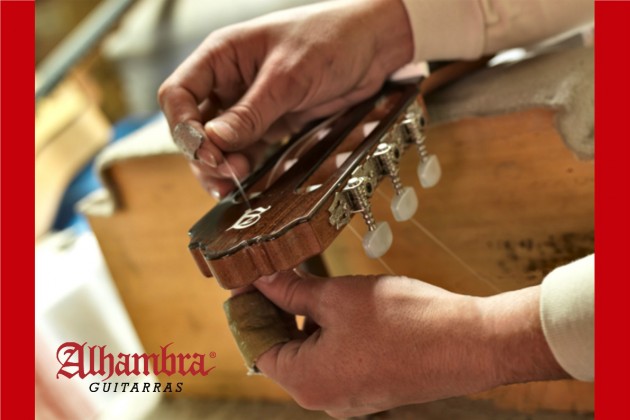Four curiosities about guitars
Some curiosities and issues about guitars that some customers and users of our web and social networks have shared with us
On a day-to-day basis, many customers contact us to ask some questions regarding the year of construction of their guitar as well as some specific features, or even how to have a good maintenance on their guitar.
We are often told some tricks or habits to keep guitars in good maintenance or protection conditions and also how to protect one’s nails.
We take advantage of this publication to mention some of these issues.
1. Pencil lead for the tuning peg: In order to have good maintenance of the tuning peg, it is convenient to use lubricant. In the case of the guitar, using liquid lubricants such as olive oil is not advisable because the wood might filter these liquids and the guitar can be damaged.
In order to prevent this, we suggest the use of a pencil lead; however, what we really need is graphite. In such way, we would crush a pencil lead and apply the graphite to the mechanism.
Graphite is a dry lubricant that is able to reduce the friction produced in the tuning peg.
2. Talcum powder for the tuning peg bones: We can often notice a small creaking on the guitar's head due to the friction produced between the bones where the strings are wound and the peg wood is placed.
After having corroborated this fact, this noise can be eliminated by applying some talcum powder in the joint between the bones where the strings are wound and the tuning peg wood.
3. Strings knots: Regarding the strings placement, there are different options depending on the guitarist’s taste.
In this case, we are told a way of placement that affects the guitar timples (high notes), where a small knot is tied at the end of the string when placed on the bridge.
This knot can only be turned once when placing the strings and it is a way to make sure that although it slips, the string will not come out.
Another option to place the knot is by burning the end of the string so that a small "ball" can remain there. The problem with this option is that the union between the string and the "ball" is quite weak and it can rip.
4. Rosehip oil to harden nails: An issue that can be one of the most worrisome for a guitarist is that regarding to their nails.
Soft nails can be an inconvenience when playing and, in addition, the use of some type of hardener product in a continuous way can be harmful.
In this case, we suggest the use of Rosehip oil as it contains various fatty acids such as omega 6, 3 and linoleic acid, antioxidants and vitamins. And among its many properties, it can also improve circulation.
The use of this oil once every two days, applying a single drop on the four nails that are used to play the guitar is enough to harden one’s nails.
According to what we have been told, your nails will be hard enough to play in only two months.



